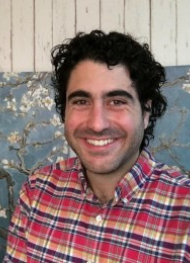Feindel Virtual Brain and Mind Lecture Series: Cognitive maps: spaces, semantics, games, and development

Dr. Christopher Baldassano presents, "Cognitive maps: spaces, semantics, games and development".
Registration via Eventbrite.
Livestreaming via Vimeo.
Speaker: Christopher Baldassano, PhD
Assistant Professor, Psychology, Columbia University, New York, USA
Abstract: Understanding and remembering realistic experiences in our everyday lives requires activating many kinds of structured knowledge about the world, including spatial maps, temporal event scripts, and semantic relationships. My recent projects have explored the ways in which we build up this schematic knowledge (during a single experiment and across developmental timescales) and can strategically deploy these cognitive maps to construct event representations that we can store in memory or use to make predictions. I will describe my lab's ongoing work developing new experimental and analysis techniques for conducting functional MRI experiments using movies, poetry, games, virtual reality, and "memory experts" to study complex naturalistic schemas.
Bio: Chris Baldassano received his PhD in Computer Science from Stanford University, and was a postdoc at Princeton University before starting his current position as an Assistant Professor in the Columbia University Psychology Department. His lab investigates how realistic experiences are divided into events, summarized, associated, and recalled using complex naturalistic stimuli such as narratives, movies, games, and virtual reality.
The Feindel Virtual Brain and Mind (VBM) Seminar Series will advance the vision of Dr. William Feindel (1918–2014), Former Director of the Neuro (1972–1984), to constantly bridge the clinical and research realms. The talks will highlight the latest advances and discoveries in neuropsychology, cognitive neuroscience, and neuroimaging.
Speakers will include scientists from across The Neuro, as well as colleagues and collaborators locally and from around the world. The series is intended to provide a virtual forum for scientists and trainees to continue to foster interdisciplinary exchanges on the mechanisms, diagnosis and treatment of brain and cognitive disorders.






